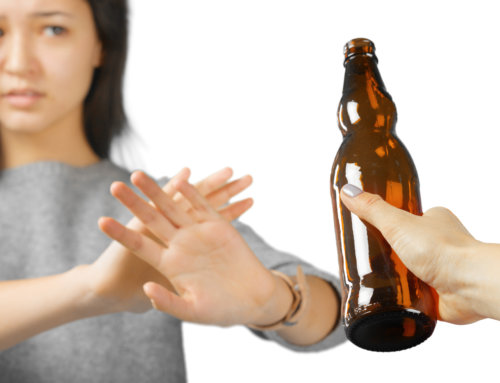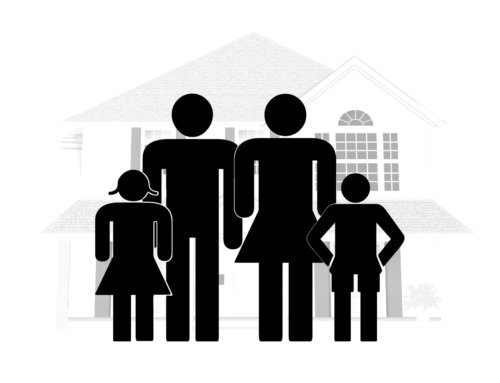Between 40 and 60% of people who received treatment for addiction or alcoholism relapse within a year. Having a plan and establishing your sober lifestyle can help you avoid a relapse. You can continue on your journey of healing and rehabilitation equipped with the tools you need.
Here are 11 tips for your sober living, Orange County CA lifestyle. With these tips, you can set yourself up for long-term success.
Learning how to manage your triggers and seek help can make all the difference. You can improve your quality of life and live to the fullest.
Discover how to remain happy, healthy, and addiction-free. Get started with these Orange County sober living tips today!
1. Set Goals
About 3% of Harvard graduates who set written goals and concrete plans made 10 times as much as the rest of the class. Setting goals for maintaining your sober living Orange County CA lifestyle can set you up for success. When establishing your goals, make sure they’re SMART:
Specific
Measurable
Attainable
Results-Driven
Timely
As you set each goal, consider establishing key performance indicators (KPIs), too. You can use your KPIs to measure your progress. If you’re not meeting your KPIs, you’ll know you need to make a change to your plans.
Try to set short- and long-term goals. You can give yourself a direction to aim for, as well as something to look forward to.
After rehabilitation, you have a clean slate. Picture your life after a year, five years, and 10 years. What do you hope to accomplish?
For example, you might want to finish school. You can set a SMART goal to graduate in the top 10% of your class by 2028.
Perhaps you want to focus on maintaining your sobriety by attending a weekly AA support group.
Make sure your goals are realistic. Establishing realistic goals can help you avoid taking on unnecessary stress.
As you meet each short-term goal, accomplish the win! Celebrating your successes can help you recognize how far you’ve come. Then, establish new goals.
Establishing goals can help give your life renewed purpose. Take advantage of that clean slate!
2. Develop a Schedule
While you were in rehab, you probably grew accustomed to following a structured schedule. Establishing a new schedule can help you maintain your Huntington Beach sober living lifestyle. Try to develop a new routine.
About one in every seven Americans develop a substance addiction. Only 10% of these people receive treatment, though. After rehabilitation, you’ll want to use what you learned to remain sober.
Developing a routine can help you remain organized. It can also help you recognize gaps in your routine.
Leaving time unaccounted for could lead to boredom. You might decide to fall on old habits. For example, you could start using out of boredom.
Instead, look for engaging activities that can enhance your life.
For example, you might decide to go to school, start vocational training, or continue your career. Make sure to add time to your schedule for therapy and support groups. Consider other ways to continue seeking treatment, too.
Don’t forget time for fun! Look for ways to spend time with friends and family members.
Surrounding yourself with people can help you find the support you need.
Talk to a therapist about developing your routine. They can help you find productive ways to spend your time.
3. Keep Taking Your Medications
If you recently completed rehabilitation, you might have started taking prescription meds as part of your treatment plan. Talk to your doctor or therapist about the medications you’re taking. Make sure you have an organized list of which medications you need to take, and when.
Then, continue following your medication plan.
Don’t stop taking these medications unless your doctor advises it. Otherwise, you might experience side effects from withdrawal. Instead, follow your doctor’s plan.
Don’t start taking new medications or supplements without talking with your doctor, either.
Some medications and supplements can cause interactions. You don’t want to experience side effects. Instead, work with a licensed physician to make more informed decisions regarding your health.
4. Work Out
Get your blood pumping! Add a workout to your new routine. Adding exercise to your sober living Orange County CA plan can boost endorphins.
Your serotonin levels can rise naturally.
Serotonin is a hormone that helps stabilize your mood. It can help produce feelings of happiness and wellbeing, too.
It also plays a part in your appetite, sleep, and digestion.
If your brain has too little serotonin, you could develop depression or anxiety. It also plays a part in:
Stimulating nausea
Controlling bowel movements and function
Controlling sleep and waking
Helping to form blood clots or heal the body from wounds
Regulating bone health
Consider participating in an exercise class. You can also use YouTube videos to exercise from your sober living home. Ask your friends and family members to work out with you.
For example, you can go for a jog in the morning before work or school.
Exercising regularly could benefit your recovery treatment. For example, regular swimming has reduced voluntary morphine consumption in opioid-dependent rats. Access to an exercise wheel reduced self-administration of cocaine in rats, too.
In a small human study, participants joined in group exercises three times a week for two to six months. A year later, five of the 20 participants reported abstinence. Another 10 people reported they’d decreased their substance use.
Beyond that, exercising could help you repair the damage to your body that occurred from your substance abuse.
5. Eat Right
It’s not enough to start working out. Consider making changes to your diet, too. Some foods can help your body heal after an addiction.
These foods include:
Dark, leafy green vegetables (arugula, kale, spinach, Swiss chard, mustard greens)
Eggs
Salmon
Berries (strawberries, blueberries, etc.)
Nuts and seeds (almonds, pecans, sunflower seeds, walnuts, hemp seeds)
Poultry (chicken and turkey)
Organ meats
Cruciferous vegetables (Brussels sprouts, kale, broccoli, cauliflower)
Shellfish
Sweet potatoes
These foods could help reduce inflammation, promote healing, and improve your immune system’s function. They’ll also provide you with the fuel you need to heal from your substance abuse.
Consider talking with a nutritionist. They could help you develop a meal plan for improving your health. Otherwise, you could develop a nutrient deficiency after prolonged drug and alcohol use.
6. Avoid Your Triggers
When developing your sober living Orange County CA plan, it’s important to consider your triggers. For example, certain people or places could trigger certain thoughts or anxieties. You might seek drugs or alcohol to cope.
Consider working with a therapist to determine your triggers. Think about what caused you to use drugs or alcohol in the past. For example, you might have encountered:
Friends who use drugs and alcohol
Work stressors
Relationship problems
Financial issues
Environmental cues
Emotional distress
Try to pinpoint specific triggers. For example, maybe there was a bar where you and your friends used to drink. Maybe a toxic relationship led you to start using drugs to cope with the stress.
Then, work to avoid your triggers.
For example, you might want to avoid going to parties where people will drink or use drugs. You might want to cut certain people out of your life, too.
If you’re feeling triggered, don’t hesitate to call for help.
7. Build a Support System
You’re not going through this alone. Try developing a support system. Surrounding yourself with people who understand what you’re going through can help.
If you’re feeling stressed, emotional, or triggered, you can lean on them for guidance.
You might benefit from researching sober living homes in Orange County. You can surround yourself with people who know exactly what you’re going through. Make sure to choose a sober living facility that’s accredited.
You can find sober living homes throughout Orange County, including:
Huntington Beach sober living
Costa Mesa sober living
Anaheim sober living
San Clemente sober living
Santa Ana sober living
Consider attending regular AA or NA meetings as well.
8. Find New Passions
Discovering new hobbies can help you avoid feeling bored. At the same time, you can develop new neural pathways. For example, you might consider learning a new language or playing an instrument.
Other hobbies include:
Joining a sports team
Photography
Cooking
Writing
Swimming
Surfing
Painting or drawing
Gardening
Singing
Dancing
Rock climbing
Try something new every month! New hobbies can help you manage negative feelings, including stress.
9. Prepare Your Finances
Think about your triggers. Did financial stress trigger your substance abuse in the past? Consider making a plan for your finances.
You might want to work with a lawyer or financial coach. They can help you make informed decisions. Then, you can avoid financial stress in the future.
10. Mend From Mistakes
Take the time to mend from past pain. Forgive yourself for your mistakes.
Try to mend any relationships you broke as well. Making amends is an important step in the process.
11. Celebrate the Wins
As you use these sober living Orange County CA tips, don’t forget to celebrate your successes! Recognize how far you’ve come and all the joys ahead.
Sober Living Orange County CA: 11 Tips for Maintaining Your Sobriety
Developing your sober living Orange County CA plan can help set you up for long-term success. Discover how to maintain your sobriety after completing rehab. Get started by using these 11 easy tips today!
Moving into a sober living home in Orange County can help.
Explore our directory today to find an Orange County sober living home near you.










Leave A Comment